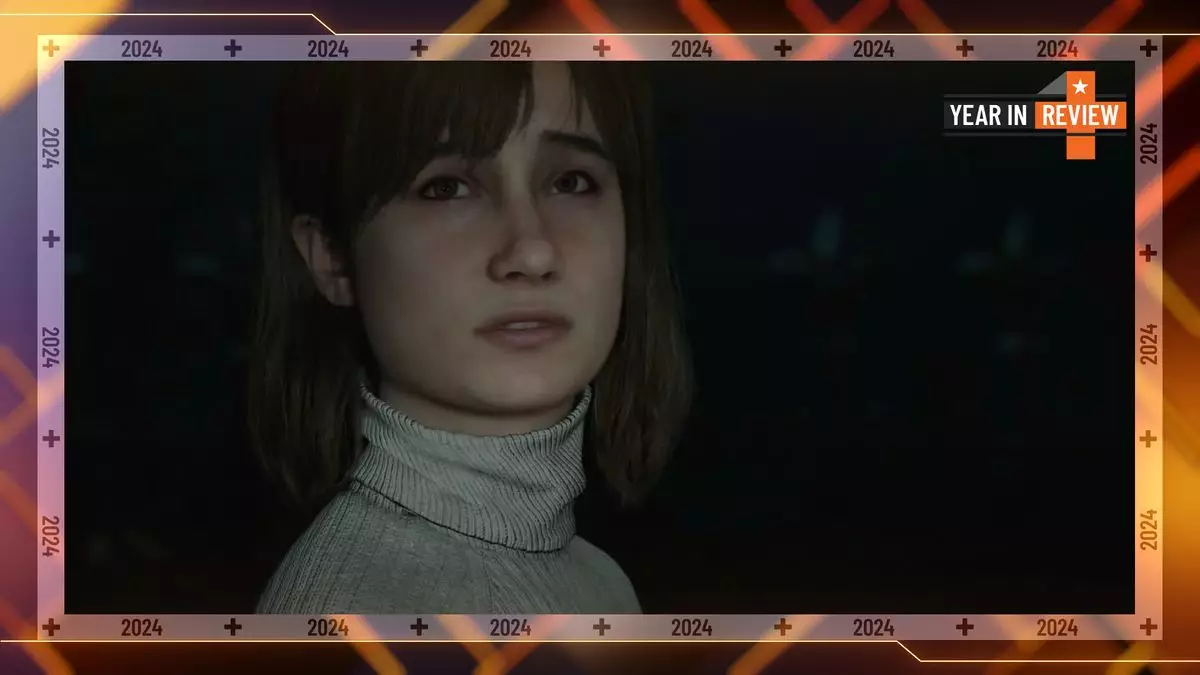Angela Orosco, a character introduced in Konami’s 2001 release of Silent Hill 2, stands as a haunting representation of trauma and victimhood. At just 19 years old, Angela’s deep-seated unhappiness and internal struggles are laid bare in her desperate grasp for control, represented symbolically by the knife she carries. The character’s evolution is particularly poignant in Bloober Team’s 2024 remake, where Angela is imbued with a sense of solemn dignity that deeply contrasts with the original’s stark presentation. This transformation is not just a stylistic choice; it resonates with the ongoing discourse about the representation of women in gaming.
In the original game, Angela’s aesthetic—a face marred by evident trauma and emotional distress—led some fans to see her as a simplistic entity, defined primarily by her suffering. Many players chafed at Bloober’s decision to depict her in a more youthful and softer light, arguing that this version lacks the gritty authenticity needed to convey her turmoil. While their concerns stem from a place of attachment to an iconic representation of anguish, it is essential to explore how character development can shift our understanding of victimhood, particularly in a medium often criticized for its portrayal of female figures.
The pain Angela endures throughout Silent Hill 2 occupies a complex narrative space that goes beyond mere visual representation. She exists in a liminal space between the archetype of the victim and the multifaceted human experience, battling not only the demons manifested in the game but also her internal struggles tied to her traumatic past. Analyzing her interactions leads to a broader commentary about the society that often reduces victims to one-dimensional narratives, ignoring their humanity.
Bloober’s remake shifts the lens through which we view Angela. The presentation moves away from a rigid representation of trauma, showcasing Angela’s resilience and demeanor that reflect a wider array of emotions. The voice performance by Gianna Kiehl is especially impactful, inviting players to genuinely empathize with Angela. Rather than merely eliciting pity, Kiehl’s delivery conveys anger, frustration, and a deep sense of betrayal, enriching the character’s psychology and demonstrating how trauma can morph into a complicated love-hate relationship with oneself.
A pivotal moment occurs near the game’s climax when Angela expresses feelings of worthlessness as she grapples with her past. This scene articulates a common sentiment among those who have faced adversity—that negative experiences often lead to self-blame. Angela’s statement, “Even Mama said it, I deserved what happened,” feels crushingly relatable, and it magnifies the shame that many survivors carry, thus moving her characterization away from a caricature into the realm of complex, relatable human experience.
The encounter with the Abstract Daddy boss poses another stark contrast between the original and Bloober’s vision. In the earlier release, this battle can feel like just another environmental hazard, overshadowed by the cartoonish dynamics of Angela’s character. However, in the remake, the confrontation emerges as a gut-wrenching exploration of the horrors that embody Angela’s life, revealing the trauma she has fought to escape. The grotesque imagery coupled with Angela’s backstory presents both a scandalous critique of the horror genre and an opportunity for discourse on the nature of abuse.
Players might find themselves reflecting not only on Angela’s tribulations but also their personal histories. This layer of narrative complexity creates an intimate bond between players and Angela, drawing upon shared human experiences that transcend the confines of gaming. This engagement fosters a sense of solidarity, allowing players to contextualize their relationship with trauma through a lens shaped not just by gameplay mechanics but by emotional resonance.
Angela Orosco’s new depiction resonates vividly in today’s landscape, where the portrayal of women in games continues to be scrutinized. This character arc underscores the necessity for nuanced female representations that do not rely on sexual appeal to evoke empathy or relatability. Angela is a robust individual, meant to be her own person, wrestling with her identity and past. Faced with her demons, she emerges not just as a victim but a survivor—reflecting the complicated reality of those who navigate spaces marred by trauma.
The reimagined Angela fosters a deeper emotional relationship between characters and players, urging society to confront its perceptions of trauma and victimhood. As stigma continues to shroud discussions around mental health and abuse, the careful crafting of Angela as a multi-layered character may resonate deeply, encouraging a more profound understanding of the multifaceted human condition. The journey through Bloober’s Silent Hill 2 becomes not merely a gaming experience but an invitation to explore both personal and shared struggles, reinforcing a vital message about recognizing the complexity of character narratives.

